24 Abril 2024 - Tabasco, Mexico
I’m sitting in a small steamy office, so narrow I can almost touch the walls with both hands with my arms extended. My legs are crossed and I can feel a drop of sweat sliding from the back of my knee to the base of my ankle. I’m leaning forward to catch the soft words being spoken across from me through the strange acoustics of this room and over the rumble of the fan blasting hot air over us.
Tiene identificacion? I take the card handed to me across the table and place it in front of me while I tap their full name, ID numbers, and birthday into a spreadsheet.
Si no, esta bien. Podemos empezar sin un carnet. Some don’t have their ID, and I ask their name and continue with the next questions:
En que fecha entró a la casa? De donde esta viajando? Adonde cruzó la frontera a México? Estaba caminando?
I ask basic questions, when did they arrive at the shelter, where are they coming from, where and how did they cross the border into Mexico from Guatemala. And more, how far have you gotten in school? Do you know how to read and write? (if not, we have legal and human rights staff that can help you with any paperwork questions you might have, that door, yes right there. It opens tomorrow at 8). Do you have children? How many? Do you practice a religion? Speak any languages besides Spanish? Where is your desired destination? Have you traveled before, how many times, were you deported, from where?
I ask harder questions, did you suffer any human rights abuses by the authorities on the border of Guatemala? They only asked you for money? Ah sí, pero eso es extorsión y también es ilegal y un abuso. Have you suffered any human rights abuses since being in Mexico? If not, Que bueno, me alegre. If so, where? How many victims? Who were the perpetrators? What happened? And the final ones, often the hardest, why did you leave your country of origin? Are you able to return without fearing for your life or your family’s lives?
I spend my afternoons like this, quietly sweating and asking new arrivals to the shelter to bear the dense heat of this small room and the discomfort of answering personal and needling questions they will likely be asked again and again over the following months. I’m sometimes able to get a laugh as I excuse my inadequate Spanish at the beginning of the interview, sometimes I have proud parents holding their children on their lap or showing me photos of them on their phone’s screen saver. Sometimes I have people who share their birthday with my cousins or friends. There are multigenerational families, men who found walking partners along the way, people my age and younger alone, women moving alone or with their children, and kids of all ages being nudged by their parents to show me their age on their hands. Most of them want to go to the United States. Most of them are fleeing horrifying violence that has crept into their hometowns, their schools, their coffee and fruit fields.
When there are no more people to interview in the evenings, I close down the computer, lights, and fan and step out into the main courtyard of the shelter, always surprised at how refreshing the 100º+ weather feels after that stuffy room. I walk outside and find my friend at the edge of the baseball field chatting with kids or just watching the birds swoop in the sunset light. We sit quietly sometimes, and sometimes I tell them parts of the stories I heard in the little room over the previous hours, and they tell me about their afternoon spent in the ropería, where they distribute toiletries and clothes to newly arriving people, but mostly watch over the goofy and rowdy bunch of kids that comes to play with the toys kept there.
This month we spent together at a migrant shelter in southern Mexico continues to fill my head months later. I have put off writing about it, and haven’t talked in too much detail about it except to my friend whom I shared it with. The days were absurdly hot and dragged on slowly, time seemingly marked in how quickly I could sweat through the clothes I was wearing as I just sat still. The kids that filled the courtyard with noise and running feet and swarming hugs are still filling my mind with memories all of the same. I miss them dearly, even though I rarely had the patience my friend did to entertain them for hours. I don’t know that much about the migrant crisis still, and knew even less going into this month. I do know that the United States cruelly abuses and turns away so many people seeking help, seeking a way out of violence for their family. I know that my hometown, like so many others across the country, largely relies on the under-payed and under-appreciated labor of the mostly Central American immigrants who keep it running and maintain the face of a dreamy mountain playground. I’m actively working on learning more about the history and present of the border crisis, but I don’t think we need to be academic or political experts to understand that everyone deserves to feel safe, to raise their children without fear for their lives, or to be well fed and well rested.
While the work I did over this month was not directly involved with river conservation or environmental justice like most of the rest of my travels, it is strongly connected. The Colorado River, whose headwaters are near where I grew up, doesn’t flow through Mexico into the Sea of Cortes anymore because of how much we’ve drained it. The last drops of this river that no longer reaches the sea are spent in the Imperial Valley of Southern California, another place– and one of the most relevant to the issue– where immigrant labor is massively under-valued. Man-made borders across the world are a symptom of the same colonial and patriarchal disease that has bred and encouraged the abuse of Indigenous peoples, watersheds, women, forestlands, children, oceans, queer people. It is all connected. While that often feels massively overwhelming to me, I also feel driven by it, because I can picture each of us armed with a pickaxe and grit, facing down one part of the system, and trusting that others are doing the same all over the world. We are chipping away at a wall that serves no one but those who made it, and we’ll all be a lot more free once it falls.
I’m not disillusioned that my time in Mexico helped the migrant crisis. It was, however, a powerful way to learn about an issue my country largely created and is perpetrating, and I’m hopeful that a handful of piggyback races and meals handed out stuck with some of the folks I met and spent time with.
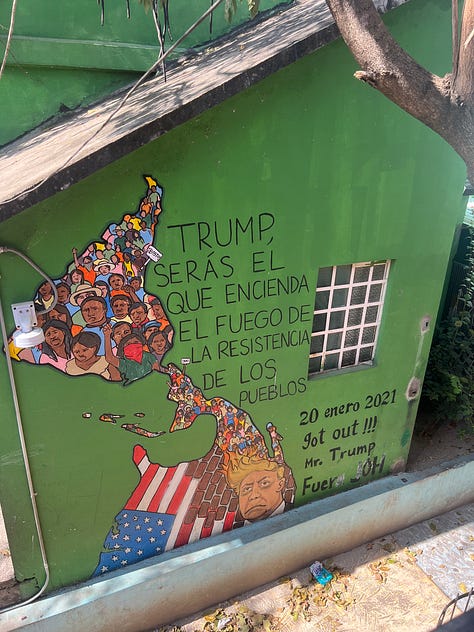





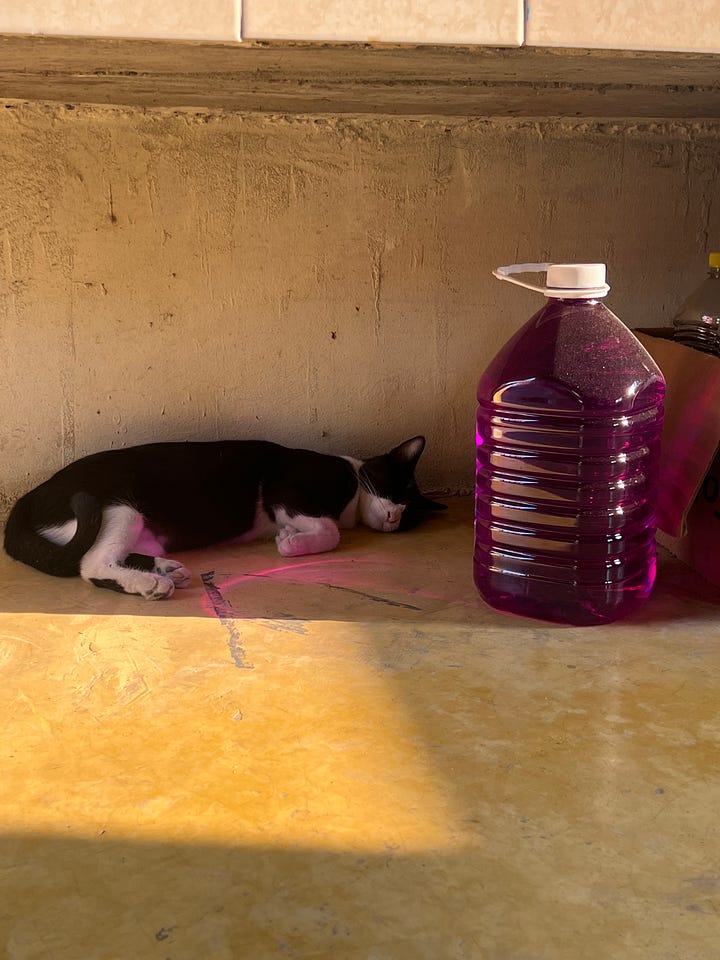
All these thoughts have been tracking their way through my brain since I’ve left the shelter. It feels good to start to tamp them down into solidity. My awesome cousin Catherine has been encouraging me throughout the past year and has recommended me some books about the border crisis. If you’re interested I’d highly recommend checking them out. I’ve loved Valeria Luiselli’s work, specifically Tell Me How It Ends and Lost Children Archive. I’m reading Gloria Anzaldúa’s Borderlands/ La Frontera right now, and on deck is No One Is Illegal by Justin Akers Chacón and Mike Davis and Border Walls by Reece Jones. I’d love to hear your thoughts if you give them a read.
Since leaving, I’ve landed in a little town in Northern Peru, where I’m sleeping on a stack of Poco pads in my friends’ kitchen when I’m not out on the Marañón River running trips with them. I got connected with this company by finding their work to defend the Marañón from dam development. Thankfully the dam proposal has expired, so the canyon isn’t in immediate threat, but it’s still not permanently protected. This river canyon has a huge amount of endemic species, and a really unique dry forest ecosystem. I just got off my second trip a few days ago, which was really special because we had a couple bat scientists tagging along and netting bats for surveys each night. We got to see tiny little bug-eating bats (just a couple inches long!), bigger fruit and nectar eating bats, and a very creepy vampire bat, all very up close! I also got to kayak this trip after rowing a gear cataraft the first trip, which was initially intimidating and then quickly very fun. I’m grateful for the long drifting days that have giving me time and space to reflect on my past 8 1/2 months, especially my time at the shelter, and also to start thinking about coming home. I just bought my plane tickets– which feels like a very big deal– and will be coming back to Colorado the first few days of August. Before then though, I get a couple more trips down the Marañón to watch the herons and parakeets, cook yummy food, paddle big waves, and sleep with river sand dusting over me (not as romantic as it sounds but still a part of it!).
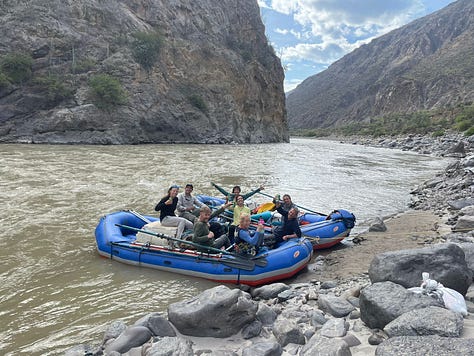
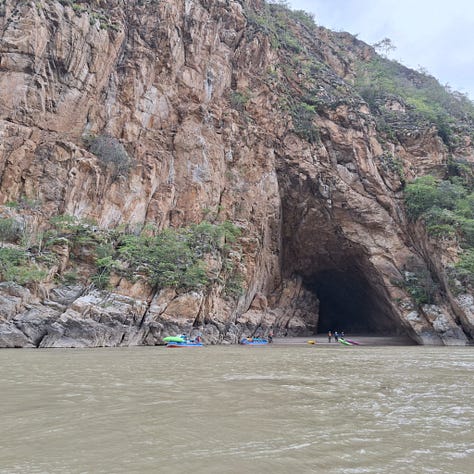
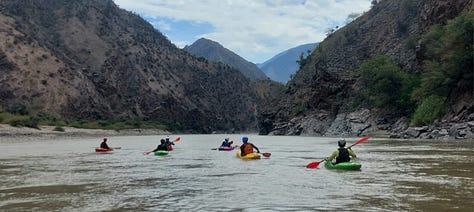

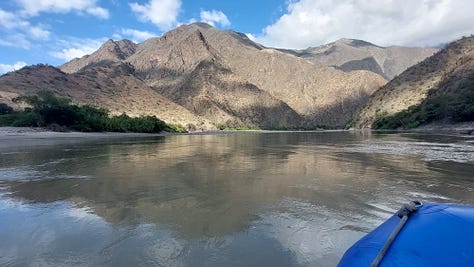

Thank you for reading again! And thank you for the nudges to write again. I hope you find little mystery footprints from bugs birds or friends soon.




Dearest one, you made me feel the sticky heat and brought tears to my eyes. I am so proud of you and your beautiful heart! The depth of your feelings come through to those who read your story and we can feel how you and the people you helped have benefited by your “being there”.
I will be so happy to see you and give you a big hug in August! I love you Carly, gramma👏❤️
Thanks Carly, love to read these and love you!